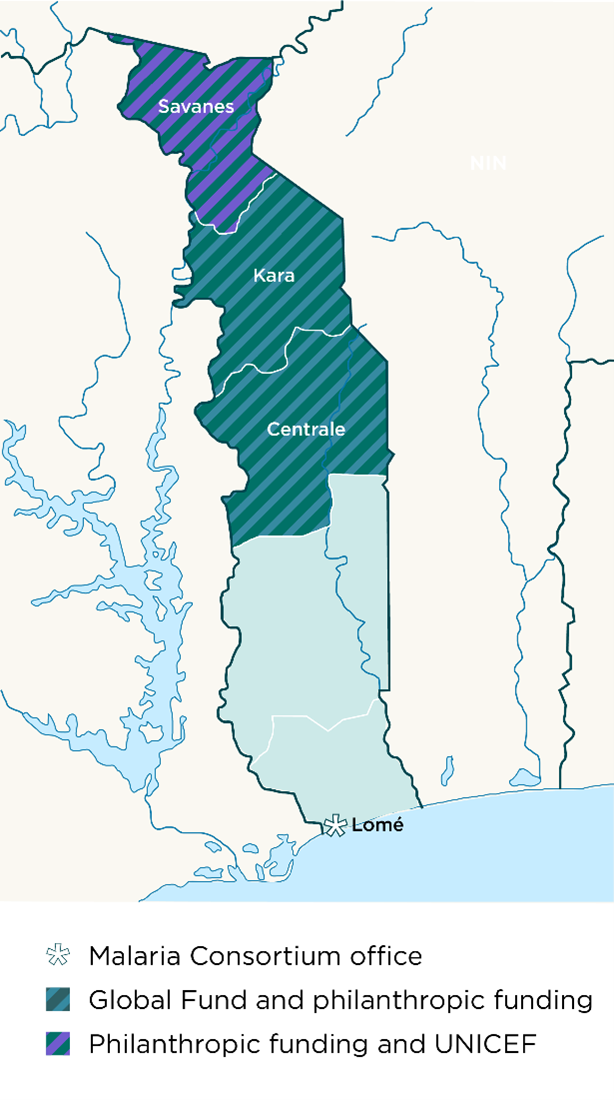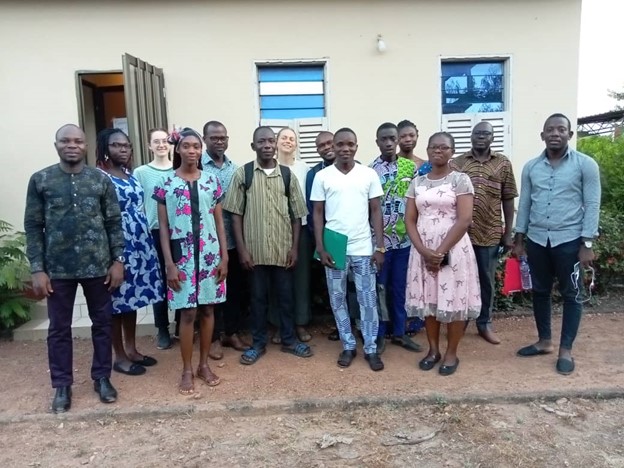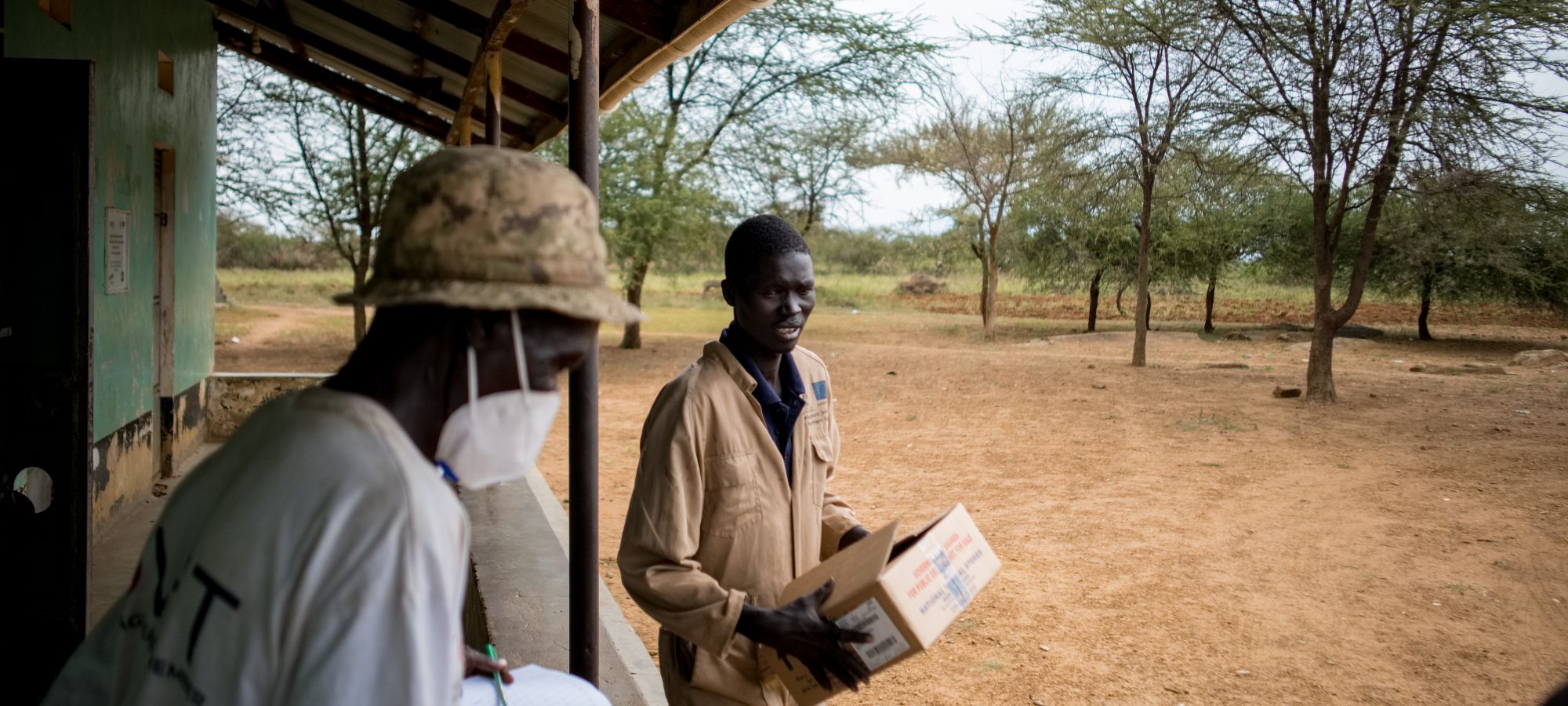| Togo has been implementing seasonal malaria chemoprevention (SMC) since 2013, following recommendations from the World Health Organization.
Since 2020, Malaria Consortium has been a partner of the Togolese Ministry of Health for implementing SMC in three regions in Togo: Savanes, Kara, and Centrale.  SMC has been proven to be effective in reducing cases of malaria in children under five across West and Central Africa and is delivered as a community-based mass distribution campaign. After 10 years of SMC implementation and a recent update to WHO consolidated guidelines for malaria, there is an emerging focus on the future of SMC. This includes seasonality criteria, drug regimens, targeted age group and transmission intensity. The updated guidelines have also prompted the malaria community to ask questions about how SMC can be delivered efficiently and if efficiency can be strengthened by tighter integration with community health services. A highlighted the need for further research on effective SMC delivery platforms and the potential closer integration of SMC with other existing platforms1. Currently, SMC is delivered through periodic campaigns through existing health system structures as opposed to taking place within routine community health service delivery. In response to this need, Malaria Consortium is working with Togo’s Cabinet d’Expertise en Recherche-Action (CERA Group) to conduct formative qualitative research to explore the feasibility and acceptability of the closer integration of SMC with routine community health service delivery. Following cooperation between Malaria Consortium teams in the UK and Togo, and the local research partner organisation CERA Group to develop the study protocol for the research, we had the opportunity to support the team in Togo in November 2022 with data collector training and pre-testing of data collection tools. The training was conducted in Mango in the Savanes region of northern Togo. Malaria Consortium’s Country Technical Coordinator in Togo, Dr Fantche Awokou, and Robert Nagbe (CERA Group Research Associate) led the interactive training sessions which included background information on SMC and community health in Togo, principles of qualitative research methodology, and ethical considerations. The formative nature of the study presented some challenges. As the first step in a possible series of research projects in Togo we primarily aimed to gather views and perceptions of the community on whether integration of SMC into the national community health system would be feasible and acceptable. However, how best to integrate SMC into the national system would be an aim of further research and has not yet been defined. This is a fine line to navigate for data collectors during interviews, making sure the discussion is focused on feasibility and acceptability exploring possible barriers and facilitators rather than an implementation design strategy. In-depth discussions about the research aim and relating each question of the topic guides to an objective helped the data collectors to strengthen their knowledge about the study and gave them the necessary background to successfully lead interviews and discussions. Another challenge we faced during the training was translation of data collection tools from French into the most widely spoken local languages in the region: Moba and Tchokossi -few people know how to write these predominantly oral languages, so topic guides could only be translated orally. Time was set apart during the training for data collectors to translate the guides, discuss the translations, and agree upon how to best phrase questions in Moba and Tchokossi. A pre-test of data collection tools conducted with community leaders and caregivers helped to refine translations. In addition to the training activities, we were also introduced to Dr Wotobe Kokou Marin, the secretary general of the Togolese Ministry of Health, Public Hygiene and Universal Access to Care, Dr Atcha-Oubou Tinah, responsible for the Togolese National Malaria Programme, and Dr Agossou Ametepe Abram, the Head of Maternal and Child Health at the Ministry of Health. These meetings provided a chance for us to discuss the formative study and potential further research projects on the way to a sustainable, optimal delivery platform for SMC. Attendance by the Ministry of Health underlined the strong buy-in from health authorities for this area of work.  Bringing together our research teams from the UK and Togo alongside the local research partners has been valuable and highlights the importance of working together and in-person. Overall, these initial activities have set the stage for what we hope will be an interesting and illuminating research study and will begin to lay the path to defining the future of SMC in Togo. Finally, we would like to express our heartfelt thanks to Dr Awokou and the Malaria Consortium Togo team for the great teamwork, and for welcoming us so warmly in-country and sharing their extensive experience with us. Theresa Pfurtscheller is a research consultant working with Malaria Consortium’s SMC programme Jennifer Ainsworth is the SMC Research Coordinator at Malaria Consortium References 1. U.S. President’s Malaria Initiative. 2022. Defining country-driven research priorities for malaria control and elimination. USAID, CDC. Cover photo: An illustrative image of supply chain staff working on SMC deployment in Karamoja, Uganda. Credit: Edward Echwalu/Malaria Consortium. |
